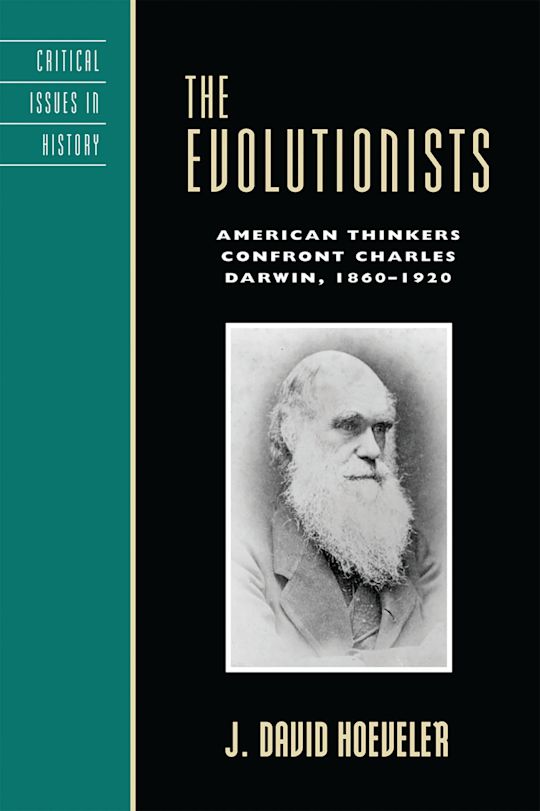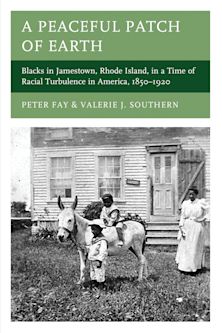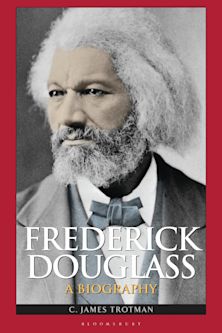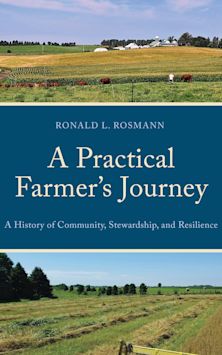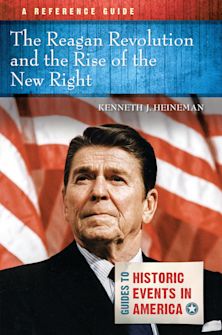- Home
- ACADEMIC
- History
- United States History
- The Evolutionists
The Evolutionists
American Thinkers Confront Charles Darwin, 1860–1920
- Textbook
The Evolutionists
American Thinkers Confront Charles Darwin, 1860–1920
- Textbook
Exam copy added to basket
Choose your preferred format. Please note ebook exam copies are fulfilled by VitalSource™.
Buy from Bloomsbury eTextBooks
You are now leaving the Bloomsbury Publishing website. Your eBook purchase will be with our partner https://www.vitalsource.com.
Your credit card statement will show this purchase originating from VitalSource Technologies. They will also provide any technical assistance you might require.
You must sign in to add this item to your wishlist. Please sign in or create an account
Description
Charles Darwin published his monumental treatise The Origin of Species in 1859. It has proved to be a major contribution to scientific theory but highly contentious as well. In the United States, more than in any other country, Darwin's theory of evolution became, and remains, a matter of "political" controversy, from the famous "monkey trial" of 1925 to efforts, even in the 21st century, to diminish its influence in American public schools.
Many people think of the Darwinian disputes as a matter of science versus religion. This book looks back to the first half-century or so of the Darwinian reception in the United States and portrays a much more complex situation. It shows that among many religious thinkers evolution received a welcome and formed the basis of a "new theology." The Evolutionists reminds us that America's most prominent scientist furnished a thoroughgoing criticism of Darwin.
The Evolutionists has a special feature in its chapter structure. After examining the pre-Darwinian world of European science and then reviewing the career of Darwin, it offers pairings of American thinkers in the several categories of American thought where Darwinian ideas had their largest impact. Thus, reviewing the scientific reception of Darwin it compares Louis Agassiz and Asa Gray; among Orthodox Protestants Charles Hodge and James McCosh; in Protestant Liberalism, Henry Ward Beecher and John Bascom. It reviews evolution's impact on American sociology through William Graham Sumner and Lester Frank Ward, and on feminism, the ideas of Charlotte Perkins Gilman and Eliza Burt Gamble. A chapter on Methodologies pairs Thorstein Veblen with Oliver Wendell Holmes, Jr., and the concluding chapter on philosophy examines William James and John Dewey.
Table of Contents
Chapter 2: Darwin's Dangerous Idea
Chapter 3: The Scientific Reception: Louis Agassiz and Asa Gray
Chapter 4: Protestant Orthodoxy: Charles Hodge and James McCosh
Chapter 5: Protestant Liberalism: Henry Ward Beecher and John Bascom
Chapter 6: Sociology: William Graham Summer and Lester Frank Ward
Chapter 7: Feminism: Charlotte Perkins Gilman and Eliza Burt Gamble
Chapter 8: Methodologies: Thorstein Veblen and Oliver Wendell Homes, Jr.
Chapter 9: Philosophy: William James and John Dewey
Product details
| Published | Mar 15 2007 |
|---|---|
| Format | Ebook (Epub & Mobi) |
| Edition | 1st |
| Extent | 278 |
| ISBN | 9780742579323 |
| Imprint | Rowman & Littlefield Publishers |
| Series | Critical Issues in American History |
| Publisher | Bloomsbury Publishing |
About the contributors
Reviews
-
American intellectuals in the late nineteenth and early twentieth centuries used evolutionary ideas and metaphors, mentioning Darwin as hero or villain and struggling to make sense of old issues in light of new concepts. They argued with him and modified his central positions right from the start. Intellectual historians have followed suit, tracing the influence of Darwin and evolutionary ideas on a wide array of disciplines. J. David Hoeveler brings them all together for the first time in this elegant study of Anglo-American ideas. The treatment is cool, even-handed, impartial, and radiantly intelligent, and ends with a shrewd and sensible meditation on the continuing Darwinian controversies of our own times.
Patrick Allitt, Cahoon Family Professor of American History, Emory University
-
A thoughtful, judicious book. . . . Highly Recommended.
Choice Reviews
-
By concisely telling the story of how prominent figures grappled with the paradigm shift, Hoeveler's book provides a handy guide for tracing the intellectual transformation brought on by Charles Darwin's revolutionary thesis in a manner well suited for those unacquainted with its considerable impact. These fascinating chapters on how the faithful reconciled their traditions with Darwin's theory should fill in many gaps left by survey texts. Hoeveler has succeeded in producing a highly readable and well-researched work on a topic that continues to unsettle us.
Michael LeFlem, H-Net: Humanities and Social Science Reviews Online
-
The Evolutionists should prove a valuable book for both students and teachers of American intellectual history. Gifted with an enviable talent for clear synthesis and explication, J. David Hoeveler conveys the full range of the Darwinian impact on American thought, from science to theology to social science to philosophy. And by skillfully implanting his story within the biographies of key figures from Darwin to Dewey, he serves his readers well by literally enlivening the tale.
Robert Westbrook, professor of history, University of Rochester; author of John Dewey and American Democracy









